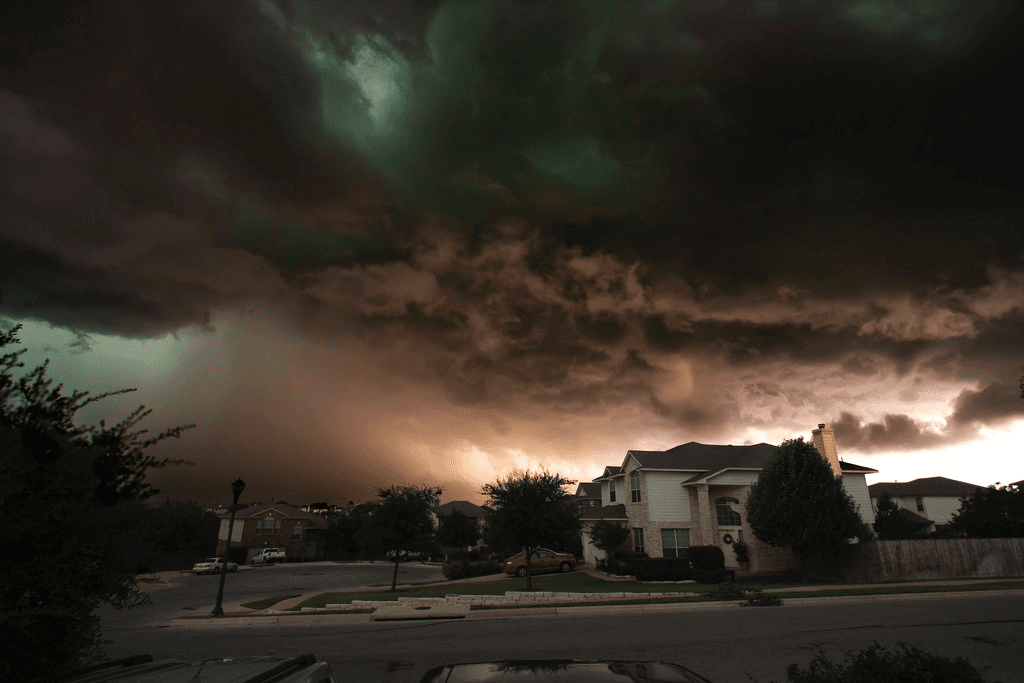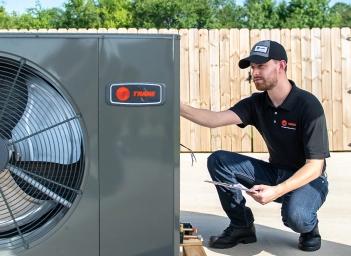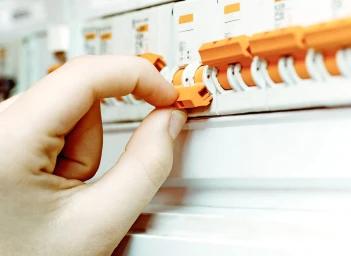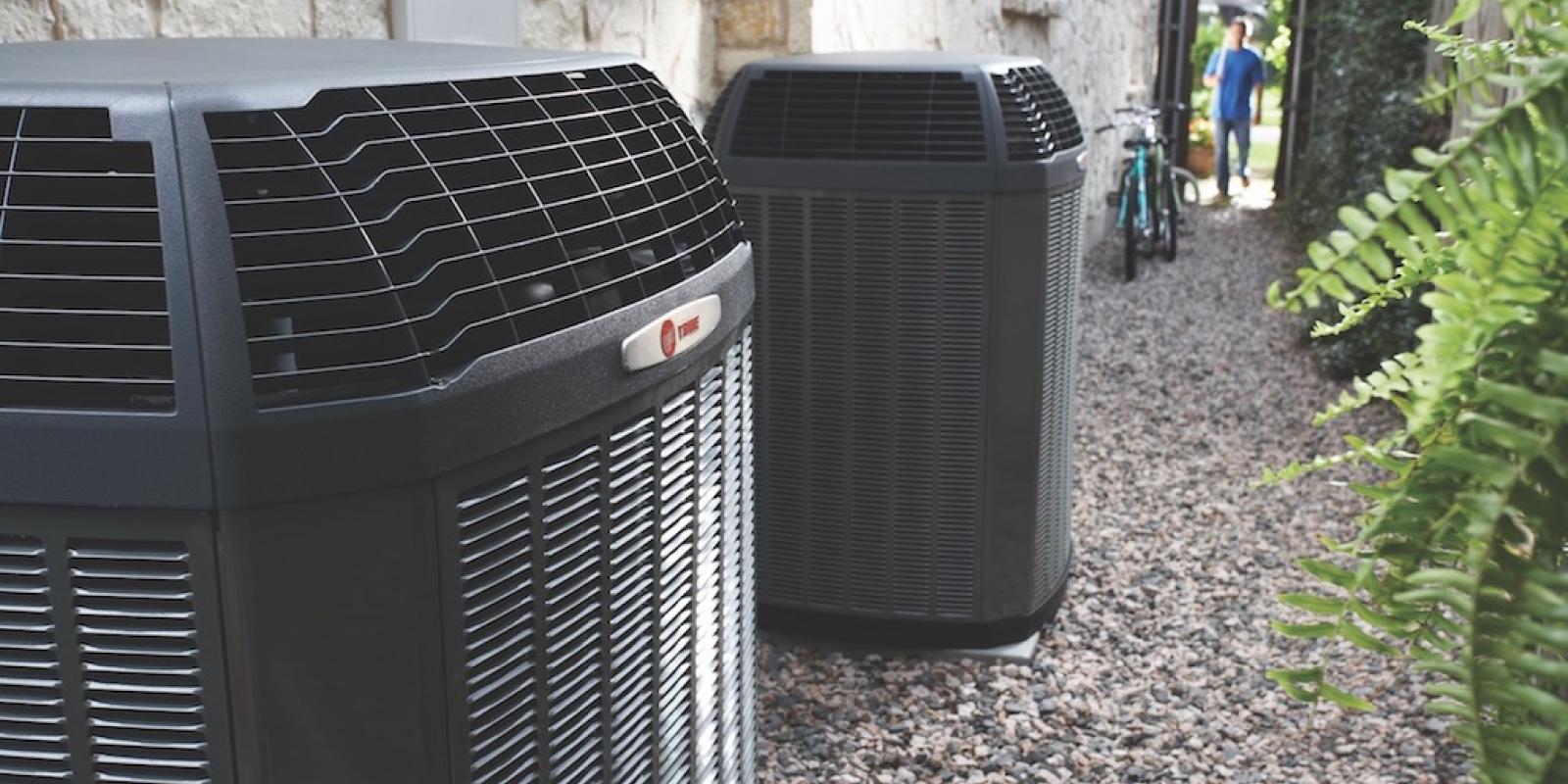8 Ways to Prepare Your AC for Storms
Learn some smart steps you can take to protect your outdoor air conditioner or heat pump during hurricanes and summer storms.
By Anne Fonda
The Atlantic Hurricane season is well underway. While the season started in June, mid-August to mid-October is the time that traditionally sees the most activity. Whether you live in a coastal state or Tornado Alley, it’s wise to protect your home and your HVAC system from whatever weather system blows your way.
Severe storms don’t just bring rain and wind. They also cause power outages, flooding, or both that can leave you without the comfort of your air conditioning and other home appliances for hours or days.
Check out Ready.gov for tips on hurricane preparedness, tornado preparedness, flooding, and other natural disasters as well as recovery. Make a plan for your family’s safety. But don’t forget to take steps to protect your AC or heat pump from storm damage as well.
Protecting your outdoor condenser unit
Below are steps you can take long before, during, and after a storm to minimize damage to your air conditioner or heat pump and get it up and running faster when the power comes back on. You can add these items to your hurricane preparedness list, but you don’t have to wait until a hurricane or tornado is bearing down to prepare for storm season.
#1: Months before a storm: Trim overhanging branches
If you have large trees and the branches overhang your outdoor condenser unit or home, trim them back. High winds from a hurricane, tropical storm, or tornado can snap them like twigs, causing them to fall with force on the air conditioning unit or your roof. Make protecting it from flying tree branches a practice all year long - not just during the summer.
#2: Months before a storm: Consider buying flood insurance
Consider buying flood insurance, even if you’re not in a coastal area where your mortgage lender requires it. Flood insurance is separate from your homeowner’s insurance, which doesn’t cover flood damage. To be covered, your policy must be in place 30 days before flood damage.
Flood insurance can protect you if a hurricane storm surge, flooding from a swollen river, or even extraordinary levels of rain flood your outdoor unit or your basement. It can cover the costs of HVAC repair and even buying a new HVAC system after you pay your deductible.
Read the Federal Emergency Management Agency’s (FEMA) Myths and Facts About Flood Insurance for more information.
#3: Months or weeks before a storm: Consider buying a generator
Consider how you would cope if your home was without power for hours or days. Just thinking about it makes the idea of buying a portable generator or investing in a whole-house generator an appealing thought.
A generator can bring comfort and peace of mind any time of year. It can also make your home a haven for family and friends during storm recovery. Do your homework and select the best generator for your needs.
Pro tip: Don’t wait until a hurricane is bearing down to get a generator. Prices skyrocket as demand increases.
#4: Months before a storm: Install an HVAC surge protector
Like surge protector power strips for your computer and electronics, an HVAC surge protector protects your HVAC system from power surges that can occur during severe storms. Select a surge protector specifically designed for HVAC systems and have an HVAC professional install it. The right surge protector can also withstand temperature extremes and high humidity.
#5: Months or days before a storm: Secure your HVAC unit
Secure the unit. If you have an elevated air conditioner on a second story, be sure to secure your outdoor condenser unit with hurricane straps to keep it in place during strong wind gusts. In Florida, you’re required to bolt your condenser unit to a hurricane pad.
If your area is prone to flooding, you may want to get an HVAC professional to elevate your unit for better protection.
#6: The day of the predicted storm: Pre-cool your home
Use your air conditioning system to pre-cool your home. If you think your power may go out during a summer storm, go ahead and cool your home in advance so you can stay as comfortable as possible until power is restored. Set your thermostat to a cooler setting than usual, close curtains and blinds, and keep doors and windows shut to keep the cold air inside.
#7: Right before or during a storm: Turn off the power to your condenser unit
Before you evacuate or hunker down to ride out the storm, turn off the electricity to your air conditioner or heat pump. Electrical surges from lightning strikes during the storm can damage your AC unit.
There’s also a chance that debris could get stuck in your outdoor unit and burn out the motor. Play it safe by shutting off power to your AC system. We recommend you turn off the power from your thermostat and circuit breaker.
#8: After a storm: Check the unit for damage before turning it back on
Check for damage before you turn your air conditioning back on. This is one of the most important steps. Don’t forget to assess the storm damage before you turn your system back on. Flooding or flying debris could have damaged your unit and turning it on can make the problem worse.
Also, storm winds may cause disconnections within your AC unit, which could lead to refrigerant leaks. Do turn your AC on as soon as it seems safe. This can help prevent mold and mildew from settling in.
After the storm: HVAC repair
If your HVAC system was damaged during a hurricane, tornado, or other storm, it’s important to get it checked out by an HVAC professional. Lightning strikes, flooding, and falling trees can all damage your system and your home.
HVAC repair may be possible, depending on the extent of the damage. But HVAC replacement may be necessary. Contact your local Trane dealer to assess the situation and make recommendations to help get your home comfortable again.
Anne Fonda
Content Writer, Trane Technologies
A Content Writer with Trane Technologies, Anne Fonda researches topics and writes for Trane® and associated residential HVAC brands. She works in collaboration with Trane Technologies subject matter experts, offering easy-to-understand, informative content on complex topics. Her goal is to help consumers make informed decisions on the products and services they need.
She has written for HVAC and other service provider websites for over 16 years. Before transitioning to web content writing, Anne had a 14-year stint as an award-winning journalist. She graduated cum laude from the University of Missouri-Columbia School of Journalism.
When she’s not working, Anne enjoys playing word games, reading, gardening, spending time with family, and visiting gardens and museums.




